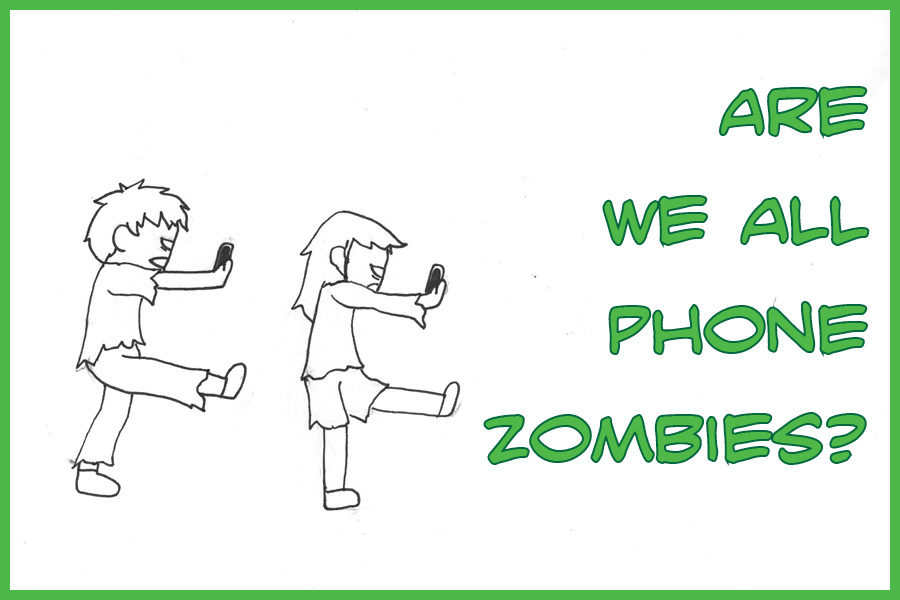Can Teens Still Socialize?
October 24, 2019
It’s no secret that electronics have become a big part of many people’s lives. Cell phones can be useful to read email, contact people, and shoot angry birds at green pigs. These little devices have been life-changing, but in a positive or negative way?
If phones are an easy way to connect with people, how come in this age, people feel more isolated than ever before? Depression and suicide rates have been increasing as people, especially teens, become more attached to electronics. Although correlation doesn’t always imply causation, many of the kids who have anxiety or depression have talked about the negative effect technology has on their lives, particularly social media.
Many people report feeling addicted to their phones and about 50 percent of girls say they are almost constantly online, compared to 39 percent of boys. Almost half of teens are victims of cyberbullying, and social media is one of the most prominent vehicles for that kind of negativity, according to Monica Anderson and Jingjing Jiang of the Pew Research Center.
Jean Twenge, the author of iGen and Generation Me, says, “This is the first generation to spend their entire adolescence in the age of the smartphone.” She also claims that this technology has stunted mental growth among teens. These “digital natives” have learned to socialize in different ways from previous age groups.
Jeff Nalin, writing for the Anxiety and Depression Association of America, says more kids are becoming anxious in social situations, and many kids use their phones as a way to avoid that kind of confrontation: “Isolation can prevent them from learning the critical social skills that they will need in life.”
How will this lack of communication skills affect how these kids socialize in future job interviews or even through simple tasks such as getting coffee? It’s difficult to tell whether today’s teens will develop basic social skills later in life and be able to survive in society.
Teachers have also noticed a change in student socialization. English and journalism teacher Ms. Gerber says, “You used to have to try to get kids to stop talking in class, but now you have to work to get them to talk to each other.”
This age group is characterized as “a generation of anti-social, chronically anxious, self-obsessed zombies,” but how accurate is this?

Samuel Veissiere and Mariah Stendel, writing for Frontiers in Psychology, say, “Smartphones…can also enable us to remember and celebrate the role of other people in making us who we are, and help us treasure the bonds that make us a uniquely social species.” They also claim that smartphone addiction is not “anti-social” but “hyper-social.” This theory holds that this need to be watched and liked is not abnormal but is actually an example of human sociality that has evolved since previous generations.
Should there be more restrictions on phones in schools and at home?
This smartphone epidemic has prompted many “helicopter parents” (those parents who pay extremely close attention to their children’s lives) to put restrictions in place. The guidelines say that teens should only have two hours of screen time per day.
Many parents believe this could be effective, and more than half of teens with cell phones have at-home restrictions. These parents believe that if they enforce a time when their kids can’t use their devices, they will do better in school, and it will force them to socialize and do more hands-on activities.
But the questions remain: Is this an effective way to teach kids to be more social? If teens are constantly on their phones, is this toxic behavior? And how dangerous is it really?



jimmy agnew • Oct 31, 2019 at 3:45 pm
great job